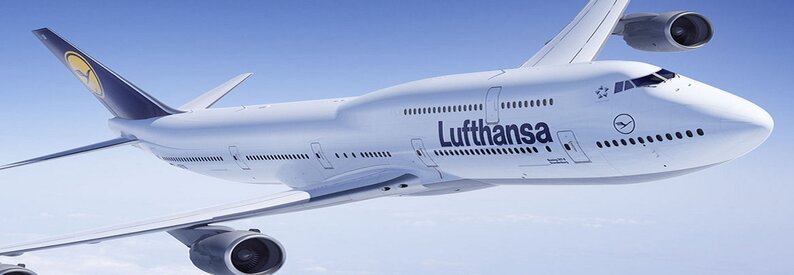Lufthansa Q1 Revenue Up 10% as Losses Narrow

Lufthansa Group reported a 10 percent increase in first-quarter revenue, reaching €8.1 billion compared with €7.4 billion in the same period last year. The German carrier’s adjusted operating loss (EBIT) improved to €722 million, narrowing from a €849 million loss in 1Q24 and lifting its margin to –8.9 percent from –11.5 percent.
Passenger airline revenues rose 6 percent to €5.9 billion, although adjusted EBIT for the passenger division recorded a €934 million loss, slightly wider than the €918 million shortfall a year earlier. Unit revenues (RASK) grew 2.7 percent on the back of sustained demand and lower passenger compensation costs, while average yields edged up 0.4 percent year-on-year.
Underlying cost pressures remained, with unit costs excluding fuel and emissions (CASK-X) up 3.1 percent. The Group cited higher fees from air traffic control and airports—up 19 percent—and inflationary maintenance expenses as primary drivers. A shift of the Easter travel season into the second quarter also weighed on comparability, the carrier noted, adding that without this calendar effect passenger airlines would have delivered a sharper earnings improvement.
Operating cash flow climbed to around €1.8 billion from €1.3 billion in 1Q24, reflecting improved working capital tied to seasonal ticket sales. Adjusted free cash flow more than doubled to €835 million, bolstered by lower net capital expenditure and a €24 million sale-and-leaseback transaction. The balance sheet strengthened with net debt falling to €5.3 billion from €5.7 billion at year-end, pension obligations declining to €2.2 billion, and total liquidity rising to €11.4 billion.
Across its airlines—including Lufthansa, SWISS, Austrian, Brussels Airlines, ITA Airways and Discover Airlines—the Group expanded capacity by nearly 5 percent. Load factors dipped slightly to 78.7 percent, but punctuality and operational stability improved, reducing direct delay and cancellation compensation payments by 52 percent to €47 million.
“Global demand for air travel continues to grow,” said CEO Carsten Spohr. “Despite geopolitical uncertainties, we remain on course for growth, are optimistic about the summer, and stick to our positive outlook for 2025. Our airlines sold expanded capacity at higher yields, and our core Lufthansa brand had its best operational start in ten years.”
North American traffic was particularly strong. Passenger numbers on transatlantic routes rose more than 7 percent, with yields up 6.7 percent in 1Q25. In March, Lufthansa Group carriers carried around 25 percent more travelers from the U.S. to Europe than in March 2024. Mediterranean leisure destinations also saw robust bookings, and long-haul demand remained steady.
CFO Till Streichert acknowledged “a period of high volatility” driven by macroeconomic risks such as trade tensions, but highlighted favourable fuel prices and exchange rates as mitigating factors. “We are making progress on our turnaround programme and are prepared to respond should market risks materialize. Overall, we remain confident in delivering a full-year result significantly above last year’s level.”
With a stronger financial position, improved cash flows and operational gains, Lufthansa Group enters the summer travel season well-positioned. Management reiterated its goal of returning to profitability and capturing growth opportunities across its European and intercontinental networks despite the ongoing economic uncertainties.
Related News : https://airguide.info/?s=Lufthansa
